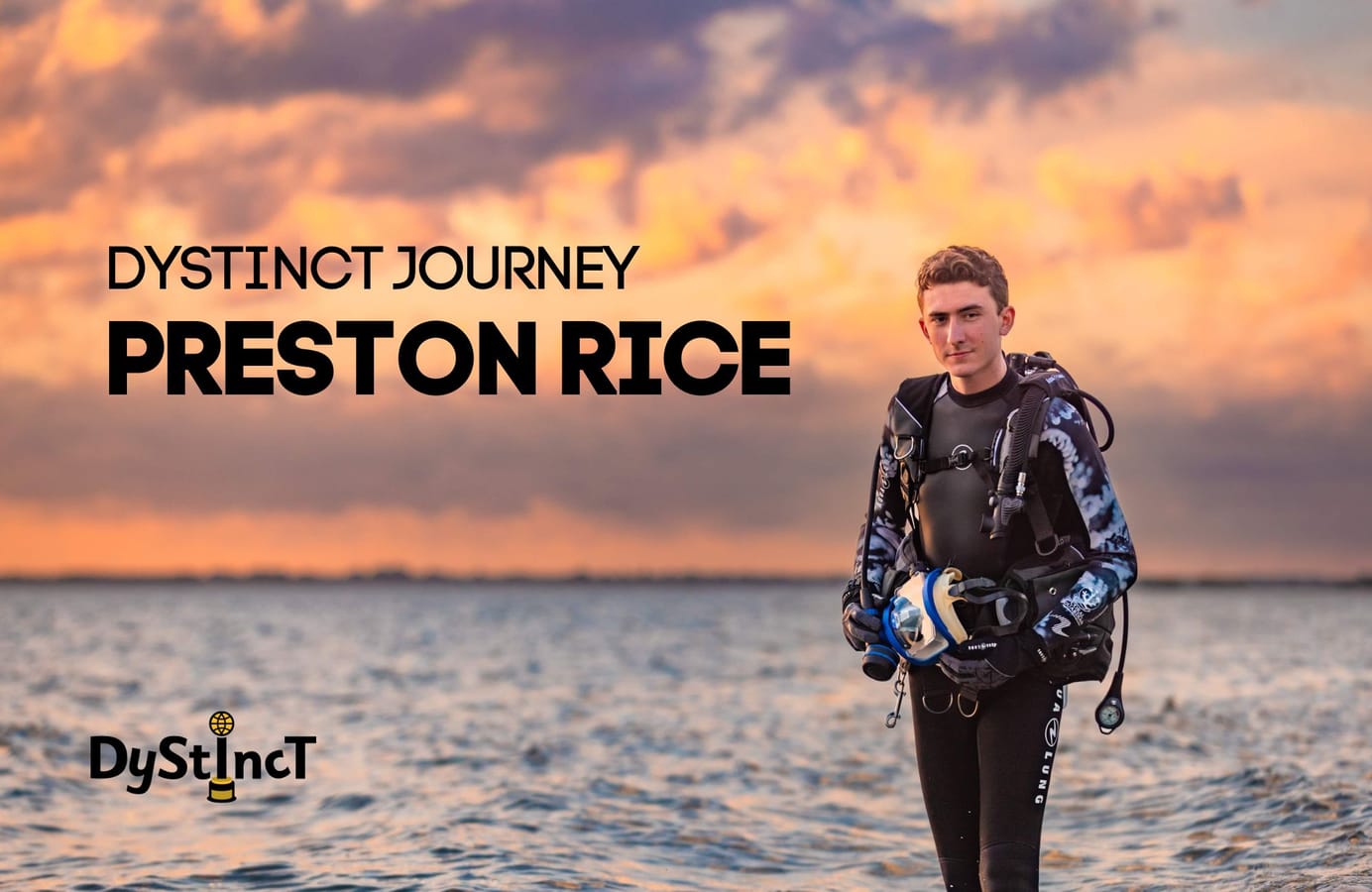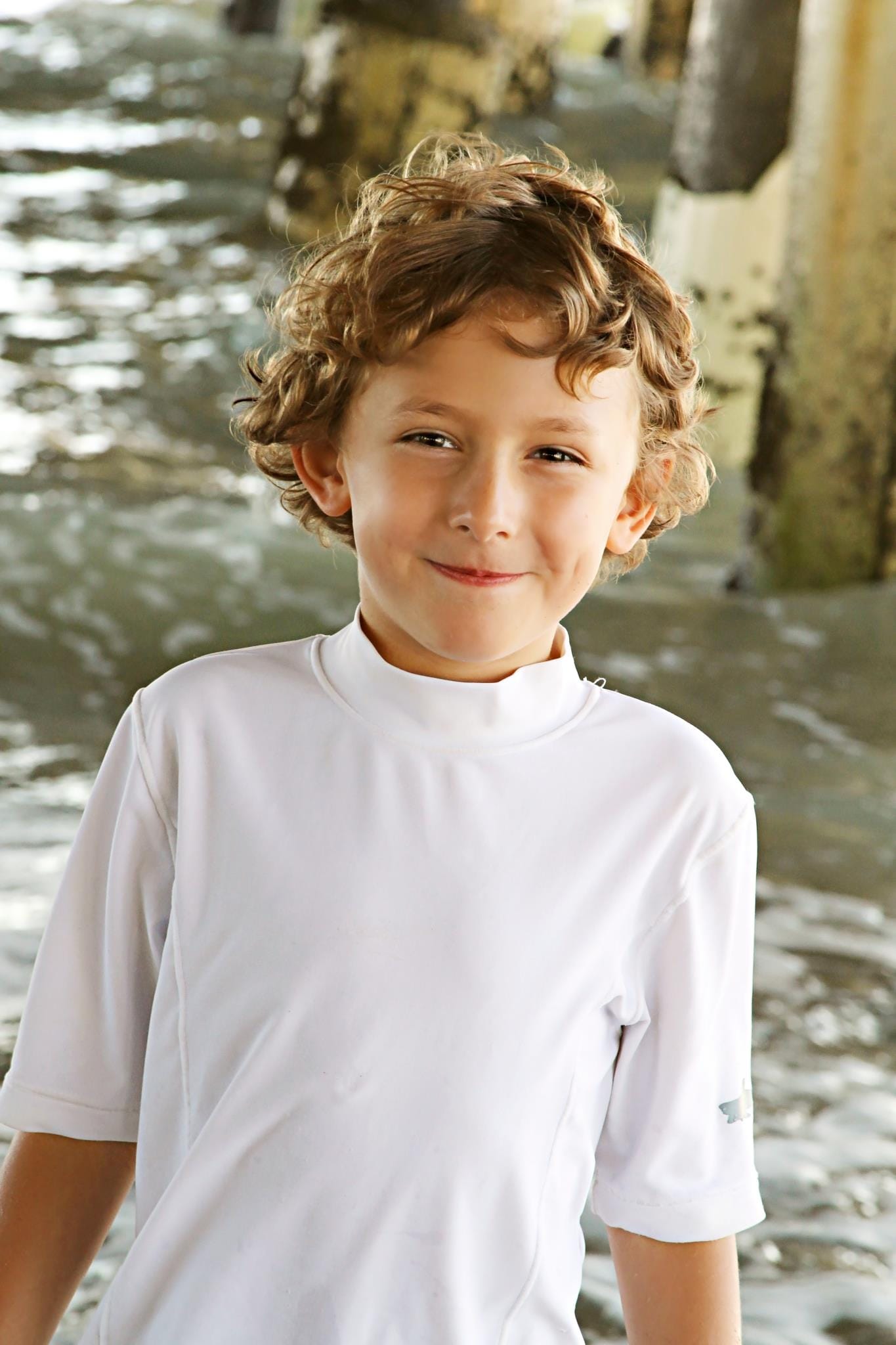
Issue 24: Dystinct Journey of Preston Rice
Preston Rice’s journey, fuelled by a deep curiosity for the ocean and his parents’ dedicated advocacy, led him from early learning challenges to a Master Scuba Diver certification and a place at Nova Southeastern University to pursue his passion for marine biology.

Preston Rice has always had a rare spark - an ability to see the world in ways that make others stop and pay attention. His family noticed it early, in the way he'd explore his surroundings with boundless curiosity, uncovering tiny details and hidden treasures that most would miss. At the beach, he'd spot sea creatures tucked away in the sand, his sharp eye and endless curiosity forming a natural connection with the ocean. And when he'd tell stories, he'd bring them to life, drawing others into his vivid imagination.

Heather Rice, his mother, describes this unique ability: "He's always had a particularly special knack for seeing things others don't see. Even in a crowded room, Preston could pick out the most obscure item out of place." His gift for discovery became apparent as he grew older, especially at the beach, where he would find creatures hidden in the sand - fish, crabs, and other sea life that no one else noticed. But it's not just what he finds; it's how he shares it. "People are drawn to Preston because he's so excited about life," Heather adds. His contagious enthusiasm pulls others in, making them feel just as captivated by his latest passion.
People are drawn to Preston because he's so excited about life.
During Preston's early years, his parents, Jerry Rice and Heather began noticing subtle signs that hinted he was learning uniquely. As a seasoned middle and high school teacher, Heather had observed a range of approaches to learning, particularly in boys, who she says "just learn differently. They need to play, move, speak their minds, and be creative." Preston was naturally curious and drawn to exploring how things worked, yet he didn't fit the typical mould. Instead of gravitating towards crayons and picture books, he was fascinated with science books filled with detailed animal photos. "He would memorise every detail of each animal, down to the caption and location on the map," Heather recalls, "and he'd ask for more advanced books rather than the usual children's books." Unlike his brothers, Preston didn't show interest in reading or writing on his own. "He'd crawl into our laps and let us read to him for hours, but he never tried to read a word himself," Heather reflects.
When Preston started kindergarten, his challenges became more noticeable. He often struggled with recognising and spelling his own name, sometimes writing it incorrectly. "He attended VPK and kindergarten and could write his name, but I thought it was odd that he often spelled it incorrectly," Heather recalls. "I knew he should be recognising his own name and making that connection, but he wasn't." Her concerns grew further after a paediatrician's vision test suggested possible issues, making her wonder, "Could it be that he truly can't see the words, or is he just struggling to recognise them?"
By first grade, Heather knew something wasn't right, especially as Preston's teacher dismissed his challenges. She recalls the sting of finding a note on his spelling test that read, "You should try harder!" She confides, "I didn't want to reveal I was an educator. I just wanted to be Preston's mother." But when the teacher suggested ADHD and casually remarked that "a little medication" would solve the problem, Heather knew she had to take action.
Obtaining a diagnosis proved to be one of their biggest challenges. Jerry and Heather faced the school system alone, often sitting in meetings surrounded by educators and administrators who, they say, "made it feel like them vs. us." After one particularly difficult meeting, Heather recalls, "I left crying because I never felt like they were advocating for my child." At one point, she was told that "Preston would not pass the fourth-grade state standardised testing, so they would not hold him back in first or second grade." She felt as though the school had given up on him, and she knew then that she had to find a way to get him out of that system.
I didn't want to reveal I was an educator. I just wanted to be Preston's mother.
This post is for paying subscribers only
SubscribeAlready have an account? Log in


